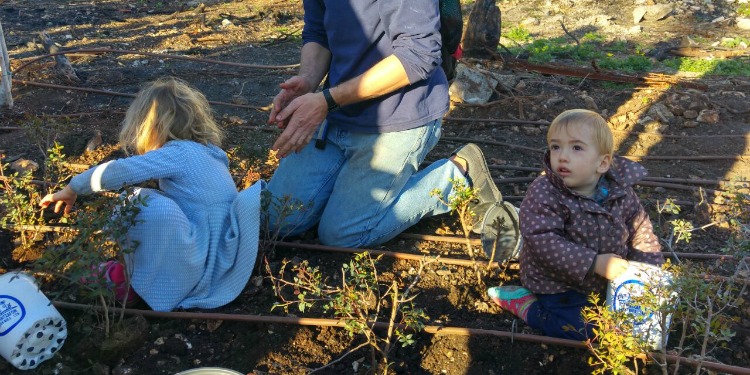Grow!
The Fellowship | August 9, 2019

For as the soil makes the sprout come up
and a garden causes seeds to grow,
so the Sovereign LORD will make righteousness
and praise spring up before all nations. — Isaiah 61:11
At sundown Aug. 10, Jews around the world commemorate Tisha B’Av, a time of mourning that marks the many tragedies that befell the Jewish people throughout history on this particular date. Yet from this time of sorrow comes a ray of hope. This is one of nine devotions from the timeless teachings of Rabbi Yechiel Eckstein exploring how we can find comfort in the depths of tragedy and transform darkness into light. To learn more about Tisha B’Av, download a copy of our complimentary Bible Study.
This season of mourning that Jews around the world have been observing began with the “Three Weeks of Mourning,” which commemorates the time period leading up to the destruction of the Temple in Jerusalem. Our mourning culminates on the ninth of Av, beginning at sundown tomorrow, a time when Jewish people mourn the loss of the Temple and all other tragedies that have ever befallen us on that day.
Following the 9th of Av, we began to pick ourselves up and move on. The message of this entire ten-week period is encapsulated in one verse from this week’s reading: “For as the soil makes the sprout come up and a garden causes seeds to grow, so the Sovereign LORD will make righteousness and praise spring up before all nations.”
Just as mud and rain are needed for flowers to blossom and vegetation to grow, so, too, all our suffering is for the purpose of growth so that we can blossom and thrive. When we are covered with dirt in life, we can see it as if we are being buried or we can see it as though we are being planted. The difference between being buried and being planted is whether or not we will grow. The mud and the rain will keep us buried if we let it. But God wants us to use our sufferings as the blessings that they really are; they are the necessary components for a seed to turn into something great.
You might be familiar with the story in Exodus about when the children of Israel were traveling into the desert and they came upon bitter waters. The Jewish sages comment that through this particular episode, God taught Moses how to pray.
What does that mean? Moses had already prayed numerous times and, through prayer, had even parted the sea.
The sages teach that God taught Moses the right way to pray in that particular circumstance. Moses could have prayed to God to uncover an alternative source of water for the Israelites – one that was sweet. However, God taught Moses to pray that the existing waters would become sweetened – and they did.
When we go through challenges in life, we aren’t supposed to pray that they disappear altogether. Rather, the correct approach is to pray that what has been bitter be transformed into something sweet. Our challenges can be transformed into opportunities. Our difficulties can make us stronger.
God doesn’t want us to go through life drinking bitter waters. He does, however, want us to make the bitter sweet through prayer, repentance, and growth. When we feel the mud and rain in our lives, remember, God isn’t saying “No.” He’s saying, “Grow!”
